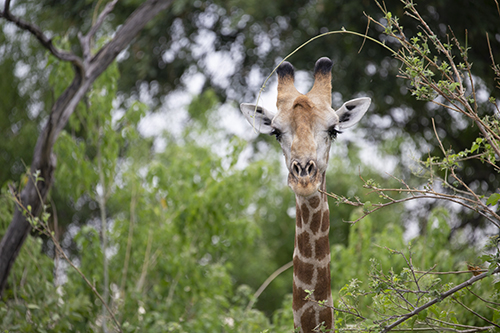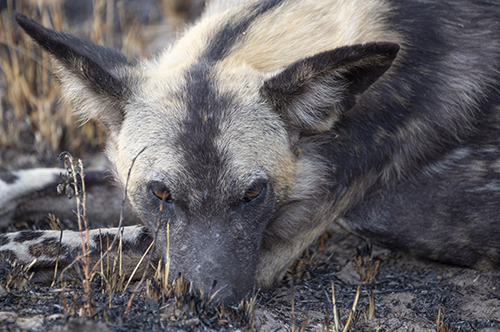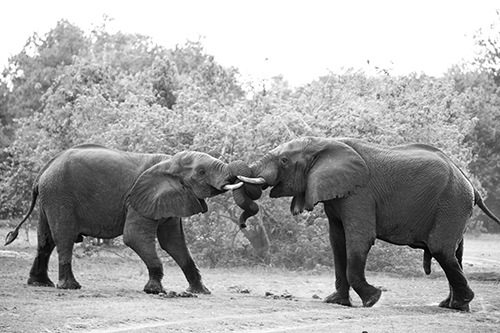


Khwai was off to an adventurous start. Little did we know that our trip here would both begin and end with elephants. But first, the time in-between.
Banda was our fearless guide, leading game drives and always conscious to give Andrew the best lighting. He’s a photographer too, and had captured some unbelievable moments in the bush. When he got wind of a rare animal nearby on the walky talky, he’d speed down the bumpy sand roads so fast it felt like we were riding a bull. We made a game of ducking before the branches whipped our faces.

One afternoon we forewent the game drive to take a relaxing trip down the delta on a mokoro. We sank deep into the water on our boat as our guide stood behind, pushing us forward. It was a welcome respite from the adrenaline-inducing game drives. When a light rain started to fall, we put our cameras into plastic bags. Within 30-seconds, the sky opened and we were drenched, struggling to see through the rain. We were laughing hysterically as our guide tried to continue the ride as thunder roared overhead. As we were rushing back, Banda was shooing hippos away from heading directly toward us with an extra mokoro boat. Our guide nearly jumped out of the boat when a final bolt of lightning came down within a mile of us, hitting a nearby car. The rain stopped just long enough for us to have sunset drinks in the park before opening the sky again.



On our last night, the staff set the most special lantern lit dinner right outside our camp. We’d made friends with the other adventurers and spent the night laughing and sharing photos. Andrew and I had successfully convinced them we’d seen a leopard kill a monkey using an old video from Banda when we heard something in the bush. We shined a light into the distance to find one giant elephant about 100 yards from us, munching on a tree. He headed toward us, then another one, and later a hippo. There we were, dining under the stars, sharing the space peacefully with massive animals also trying to get their fill.
In our tent that night, you could see the elephant passing by before we went to sleep.








